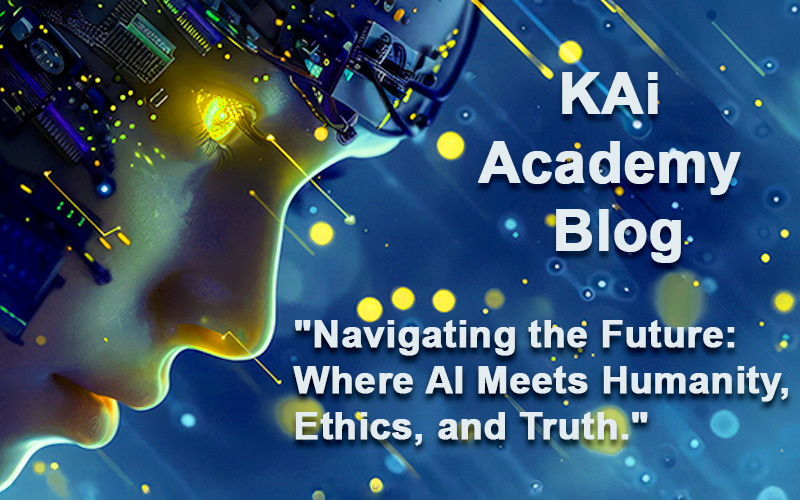
Created by - Jeffrey Cooper
"Revolutionizing the Future: Exploring Current and New AI Technology"
Artificial intelligence (AI) is no longer a distant concept confined to science fiction—it’s a powerful tool that is revolutionizing industries, reshaping economies, and transforming everyday life. As AI technology continues to evolve, it’s important to stay informed about its current capabilities and future potential. In this post, we’ll explore how AI is changing the present and how emerging innovations are poised to redefine the future.Current AI Technologies: Transforming Today’s WorldAI has already become an integral part of many aspects of life, from business and healthcare to entertainment and communication. Here are some of the current AI technologies that are leading the way:1. Machine Learning and Deep LearningAt the heart of many AI systems, machine learning (ML) allows computers to learn from data and improve their performance over time. Deep learning, a subset of ML, mimics the neural networks of the human brain to analyze complex patterns in large datasets. These technologies are behind everything from voice assistants like Siri and Alexa to recommendation algorithms used by Netflix and Amazon.2. Natural Language Processing (NLP)NLP enables machines to understand, interpret, and respond to human language. Chatbots, virtual assistants, and AI-driven translation tools rely on NLP to communicate with users in more natural and meaningful ways. Advanced NLP models like OpenAI’s GPT-4 are pushing the boundaries of conversational AI, making machines more adept at understanding context and generating human-like responses.3. Computer VisionComputer vision allows AI to process and interpret visual data from the world. From facial recognition technology to autonomous vehicles, computer vision applications are becoming increasingly sophisticated. In healthcare, AI-powered imaging tools are helping doctors detect diseases like cancer with greater accuracy, potentially saving lives.4. AI in AutomationAutomation powered by AI is transforming industries by streamlining processes and reducing human error. In manufacturing, AI-driven robots handle repetitive tasks with speed and precision. In finance, AI systems detect fraud, manage portfolios, and perform risk assessments, improving efficiency and security.Emerging AI Technologies: What’s Next?While current AI technologies are impressive, the future promises even more groundbreaking advancements. Here are some of the emerging AI technologies that could shape the future in profound ways:1. Artificial General Intelligence (AGI)Unlike narrow AI, which is designed for specific tasks, Artificial General Intelligence (AGI) aims to mimic human-like cognitive abilities. AGI would be capable of performing any intellectual task that a human can do, including problem-solving, reasoning, and learning in a general sense. Although AGI remains a theoretical concept, research into this area is gaining momentum, and achieving AGI could fundamentally alter our relationship with technology.2. AI and Quantum ComputingQuantum computing, still in its early stages, holds the potential to supercharge AI capabilities. Quantum computers can process massive amounts of data at unprecedented speeds, allowing AI systems to solve complex problems that are currently impossible for classical computers. This fusion of AI and quantum computing could revolutionize industries like cryptography, drug discovery, and climate modeling.3. AI in Creative FieldsAI’s impact isn’t limited to technical or analytical fields—it’s also making waves in creative industries. AI-generated art, music, and writing are already blurring the lines between human and machine creativity. As AI systems continue to improve, they could become valuable collaborators for artists, filmmakers, and designers, offering new ways to innovate and express ideas.4. Ethical AI and Explainable AIAs AI becomes more integrated into society, ethical concerns surrounding bias, privacy, and accountability are gaining attention. Explainable AI (XAI) is an emerging field focused on making AI systems more transparent, so users can understand how decisions are made. This is particularly important in sectors like healthcare, finance, and law, where trust in AI-driven decisions is crucial.Challenges and Opportunities AheadWhile the possibilities of AI are vast, there are challenges that need to be addressed. Issues like algorithmic bias, job displacement due to automation, and the ethical use of AI in surveillance and data privacy are growing concerns. It’s essential to create a framework for responsible AI development that ensures these technologies are used for the benefit of all.At the same time, the opportunities are enormous. AI has the potential to solve some of humanity’s biggest challenges, from climate change to global health crises. By harnessing the power of AI responsibly, we can build a future where technology enhances human life in ways we have yet to fully imagine.ConclusionAI is not just a technology of the future—it’s here, and it’s already changing the way we live, work, and interact. As new AI technologies emerge, they will continue to push the boundaries of what’s possible. The challenge for society is to guide the development of AI in a way that maximizes its benefits while minimizing its risks.By staying informed and engaging with AI thoughtfully, we can be active participants in shaping a future where AI revolutionizes the world for the better.
More detailsPublished - Tue, 15 Oct 2024
Search
Popular categories
Ai - What new!
1Practical Ai for Everyday Life
1Latest blogs

"Revolutionizing the Future: Exploring Current and New AI Technology"
Tue, 15 Oct 2024

Practical Ai for Everyday Life
Tue, 15 Oct 2024
Write a public review